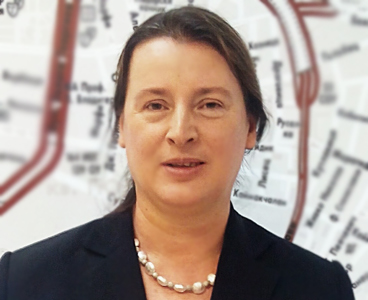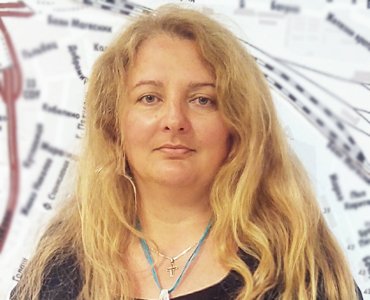Every minute one person in the world falls victim to human trafficking. Over the 2010-2012 period alone, 31,000 people within the bounds of the EU admitted to having been exploited in this manner. According to Eurostat data, 80 percent of them are women and 12 percent – underage. Seventy percent of the registered victims were trafficked for the purpose of sexual exploitation with traffickers’ revenues amounting to EUR 32 billion a year on a world scale.
According to data of the Council of Ministers’ National Commission for Combating Trafficking in Human Beings, every year 500 to 550 Bulgarian nationals are registered as trafficking victims in countries of the EU. Almost 80 percent of the victims are targeted for the purpose of sexual exploitation. Almost all are women. Trafficking victims are guaranteed the fundamental right to immediate legal protection by force of the Council of Europe Convention on Action Against Trafficking in Human Beings. “Upholding Rights! Early Legal Intervention for Victims of Trafficking” is a project involving six European countries – Ireland, Lithuania, Great Britain, Scotland, Croatia and Bulgaria. The lead organization is the Immigrant Council of Ireland; the Bulgarian partner on this project is the Bulgarian Gender Research Foundation. At a forum in Sofia, the participants in the project shared their experience in good practices for providing trafficking victims early legal intervention, assisting their social reintegration and helping them as witnesses.
 “Victims of trafficking must have guaranteed access to specialized legal aid,” says Genoveva Tisheva, Managing Director of the Bulgarian Gender Research Foundation:
“Victims of trafficking must have guaranteed access to specialized legal aid,” says Genoveva Tisheva, Managing Director of the Bulgarian Gender Research Foundation:
“So as to be identified and provided full social protection by the administrative bodies, whether the case reaches court or not, each victim of trafficking must be ready for judicial proceedings. Unfortunately, in Bulgaria there is no early legal intervention, that is why these victims remain unidentified and unprotected. With this project we aim to stop this happening in Bulgaria and to provide state financing for consultations in these cases. We have ascertained that what trafficking victims find most useful are the services offered by NGO experts.”
What are the good practices in the world and more specifically in Ireland – the answer from project coordinator Nusha Yonkova:
 “Ireland, as other EU countries, is currently encountering difficulties in providing legal aid to victims of trafficking. But in Ireland, unlike Bulgaria, there are independent legal centres which put up the funding, by raising money from abroad or local religious organizations. This means there are highly qualified legal experts working with the victims. On the downside, the police very rarely use these legal centres directly. There are certain apprehensions that when a lawyer comes into the picture this may confuse the trafficking victim in the witness box and hamper the investigation. I work for a legal centre in Ireland called Immigrant Council and our attorneys prep some of the best witnesses for successful investigations that later stand up in court. As to good practices, the very title of our project speaks for itself – the idea is for all EU members and especially the authorities whose job it is to work in the sphere of human trafficking to recognize the fact that early legal intervention by a lawyer in different cases - who will assess the situation and explain to the victim his or her choices – is usually the way to obtain good results that will benefit the victim but will also mean just verdicts for traffickers.”
“Ireland, as other EU countries, is currently encountering difficulties in providing legal aid to victims of trafficking. But in Ireland, unlike Bulgaria, there are independent legal centres which put up the funding, by raising money from abroad or local religious organizations. This means there are highly qualified legal experts working with the victims. On the downside, the police very rarely use these legal centres directly. There are certain apprehensions that when a lawyer comes into the picture this may confuse the trafficking victim in the witness box and hamper the investigation. I work for a legal centre in Ireland called Immigrant Council and our attorneys prep some of the best witnesses for successful investigations that later stand up in court. As to good practices, the very title of our project speaks for itself – the idea is for all EU members and especially the authorities whose job it is to work in the sphere of human trafficking to recognize the fact that early legal intervention by a lawyer in different cases - who will assess the situation and explain to the victim his or her choices – is usually the way to obtain good results that will benefit the victim but will also mean just verdicts for traffickers.”
On this day 35 years ago, the authoritarian regime of communist dictator Todor Zhivkov collapsed. To mark the anniversary, the BGNES news agency carried out a survey of monuments to totalitarianism. The agency checked whether the monuments of the..
Residents and guests of the village of Kolena, Stara Zagora Municipality, gather for the Young Wine Festival. The event was celebrated for the first time in 2017, and a few years later the local teacher and winemaker Martin Slavov gave the..
The tallest Ferris wheel in Bulgaria will rise above Pleven , announced regional governor Nikolay Abrashev. It will be built in a multifunctional complex near the Kaylaka Park. "The project envisages the construction of a Ferris wheel with a..
Who said Bulgarians were grumpy pessimists? Take a stroll through Sofia's Christmas bazaars and meet the cheerful crowd. The festive decorations, music,..

+359 2 9336 661
